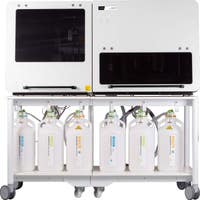Background
Neural tube defects (NTDs) are severe birth defects of the central nervous system that originate during embryonic development when the neural tube fails to close completely. They can affect the brain, spine, or spinal cord. NTDs happen in the first month of pregnancy, often before a woman even knows that she is pregnant.
The two most common forms are spina bifida and anencephaly1:
- In spina bifida, the fetal spinal column doesn’t close completely which leads to a protrusion of the spinal cord and/or meninges through the opening. This typically results in nerve damage that causes at least some paralysis of the legs.
- In anencephaly, most of the brain and skull do not develop. Babies with anencephaly are usually either stillborn or die shortly after birth.
Clinical diagnosis
Neural tube defects can result in variable paralysis and sensory loss in the legs, orthopedic deformities, scoliosis, neurogenic bowel and bladder, hydrocephalus, and Chiari II malformations. They are often associated with non-verbal learning disability and executive dysfunction, although intelligence is typically not impaired. Some cases can be very mild and not cause any significant health concerns. Most NTDs are detected antenatally on ultrasound or clinically at birth.2
Testing
NTDs are usually diagnosed during pregnancy through laboratory or imaging tests.3 Prenatal laboratory tests may include:
- “Triple or Quad screen” blood test: one part of this blood test looks for an elevated level of alpha-fetoprotein (AFP), which is associated with a higher risk of NTDs. The AFP test also can be done by itself. This test generally is done during the second trimester.
- Amniotic fluid tests: testing amniotic fluid may also show a high level of AFP, as well as high levels of acetylcholinesterase. Health care providers might perform this test to confirm the high levels of AFP seen in the triple/quad screen blood test. The amniotic fluid also can be tested for chromosomal abnormalities, which might also be the cause of the abnormal AFP level.
Treatment
There is no cure for neural tube defects. The nerve damage and loss of function that are present at birth are usually permanent. However, a variety of treatments e.g. fetal surgery for spina bifida4 can sometimes prevent further damage and reduce complications.
Inheritance
The exact causes of neural tube defects aren’t known. A woman is at a greater risk of having an infant with a neural tube defect if she has obesity, poorly controlled diabetes or takes certain antiseizure medicines. Getting enough folic acid, a type of B vitamin, before and during pregnancy lowers the chance for most neural tube defects.
Instruments for NTD screening






























